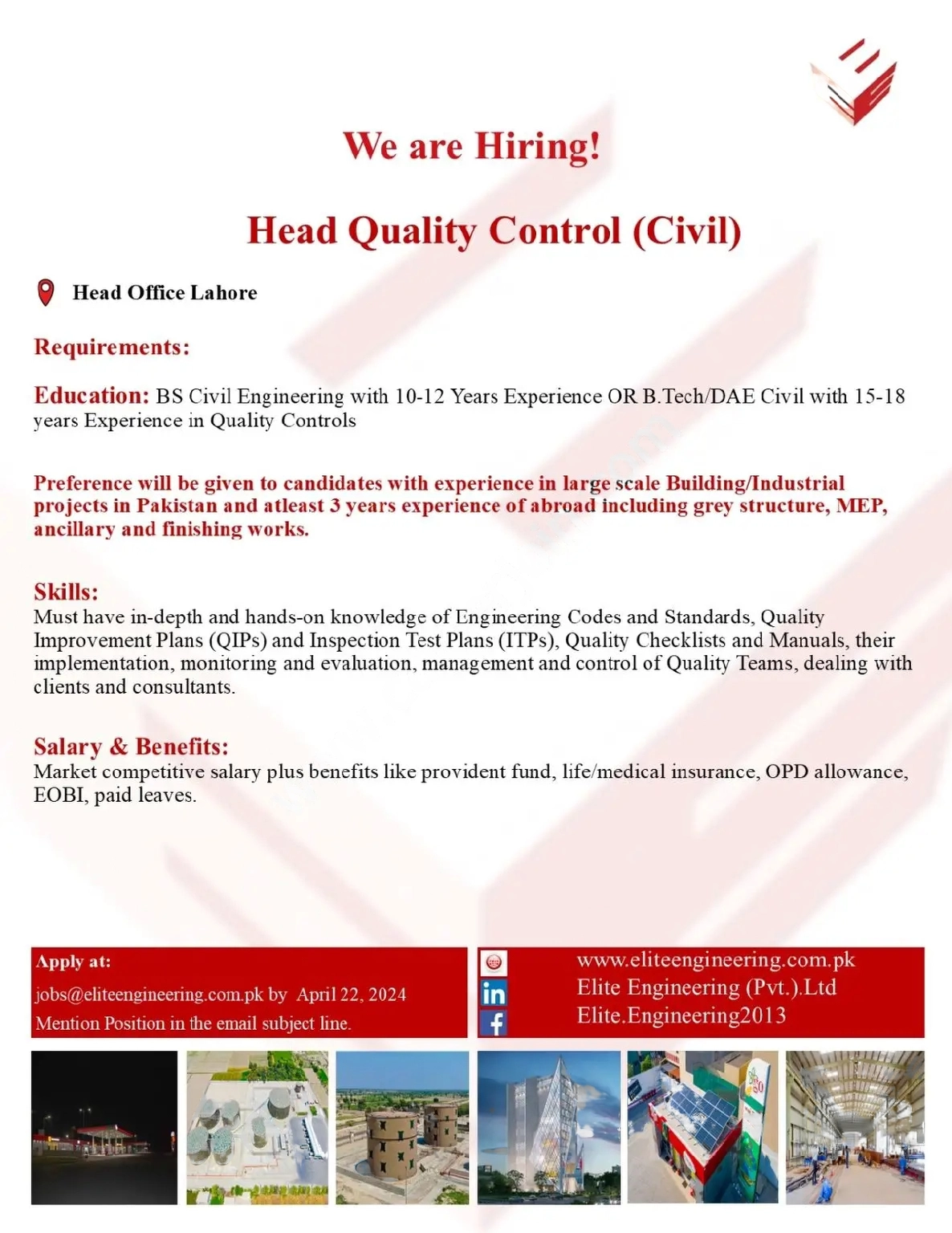Table of Contents
ToggleA Quality Control Engineer
Ensuring that goods and services fulfill defined quality standards and specifications is the job of a quality control engineer. Their main goal is to keep an organization’s procedures, goods, and services at or above acceptable levels of quality. The following is a thorough explanation of the duties, abilities, and requirements that are normally connected to the position of a quality control engineer:
Responsibilities:
- Creating Quality Standards: To guarantee adherence to legal requirements and consumer expectations, quality standards, processes, and guidelines must be established and put into practice.
- Quality inspections: Testing and inspecting components, finished goods, and raw materials to find flaws, non-conformities, or variations from specifications.
- Monitoring production procedures to make sure that quality standards are being met and to spot opportunities for improvement is known as quality assurance. putting preventative and remedial measures into place to deal with quality problems and stop them from happening again.
- Documentation: Keeping thorough records of test results, quality inspection findings, and quality assurance operations. producing documentation and reports to share conclusions and suggestions.
- Continuous Improvement: Finding ways to optimize processes and boost productivity in order to increase product quality, cut down on waste, and lower the number of errors.
- Working together with suppliers to define quality standards, assess supplier performance, and resolve quality-related supply chain concerns is known as supplier quality management.
- Education and Training: Teaching manufacturing workers and other interested parties about best practices, standards, and quality control processes.
- Customer feedback: Gathering and examining complaints, quality measurements, and customer feedback to find patterns, the underlying reasons of problems with quality, and areas that can be improved.
Skills and Qualifications:
- Technical Knowledge: Comprehensive grasp of statistical process control (SPC), quality assurance methods, quality management principles, and pertinent industry standards and laws.
- Analytical Skills: The capacity to examine information, spot trends, and derive insightful conclusions to help with problem-solving and decision-making.
- Meticulous attention to detail is necessary to identify and resolve even the smallest departures from quality standards.
- Effective communication abilities are necessary to communicate quality requirements, present findings, and work with suppliers, customers, and cross-functional teams.
- Problem-Solving Skills: Ability to pinpoint the underlying causes of quality problems, carry out remedial measures, and lead efforts for ongoing improvement.
- Strong organizational abilities are necessary to handle several projects, set priorities, adhere to deadlines, and function in a fast-paced setting.
- Quality Management Tools: Working knowledge of Six Sigma, Lean Manufacturing, Failure Mode and Effects Analysis (FMEA), and Control Plans are examples of quality management tools and processes.
- Education: A bachelor’s degree in quality management, engineering, or a similar discipline. It can be beneficial to hold relevant credentials like Six Sigma Green Belt or Certified Quality Engineer (CQE).
In general, a quality control engineer is essential to making sure that procedures and goods fulfill quality standards, which helps with customer pleasure, legal compliance, and organizational performance.
Note:
- Examine the job specifics in the graphic thoroughly.
- Only apply if your qualifications align with the job specifications.
- Applicants who meet the employment requirements will be given consideration.
- Those who have been shortlisted will be contacted for an interview and test.
- Applications that are incomplete or irrelevant won’t be accepted.
- Before the deadline, submit your application.
- Applications submitted after the deadline won’t be taken into account.
Join Whatsapp Group
Advertisement for the Elite Engineering Pvt Ltd Jobs 2024
 For more jobs, keep visiting our website, todaynews7.com
For more jobs, keep visiting our website, todaynews7.com